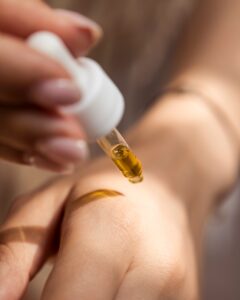Choosing the Right Skin Care Expert: Dermatologist vs. Esthetician
When it comes to maintaining healthy and radiant skin, seeking the expertise of a skin care specialist is crucial. However, with the plethora of professionals available, it can be challenging to discern the differences between a dermatologist, esthetician, and aesthetician.
Understanding the Difference
To make an informed decision about your skin care needs, it’s essential to understand the unique roles and qualifications of dermatologists, estheticians, and aestheticians.
Defining the Roles of Dermatologists
A dermatologist is a medical doctor who specializes in diagnosing and treating skin conditions, including acne, skin cancer, and various dermatological issues. They are qualified to perform cosmetic procedures, such as chemical peels, laser hair removal, and administer medical spa treatments.
Exploring the Responsibilities of Estheticians
Estheticians, on the other hand, are skin care specialists who focus on providing personalized facial treatments, addressing skincare concerns, and offering spa services such as waxing and relaxation therapies. They are trained to assess skin conditions and recommend suitable skincare regimens.
Understanding the Role of Aestheticians
Similarly, aestheticians also concentrate on enhancing skin health but may not have the extensive medical training of dermatologists. They often work in spas and wellness centers, delivering treatments that prioritize the improvement of skin texture and appearance through non-invasive procedures.

Educational Background and Expertise
Understanding the educational background and expertise of dermatologists, estheticians, and aestheticians is essential in making an informed decision about skin care needs.
Training and Specializations of Dermatologists
Dermatologists undergo extensive medical training to diagnose and treat various skin conditions, including acne, skin cancer, and dermatological issues. They are also skilled in performing cosmetic procedures such as chemical peels, laser hair removal, and medical spa treatments, ensuring comprehensive care for their patients.
Educational Requirements for Estheticians
Estheticians receive specialized training in skincare, focusing on personalized facial treatments, skincare assessment, and spa services such as waxing and relaxation therapies. Their qualifications equip them to address skincare concerns and recommend suitable skincare regimens to clients.
Training and Certifications for Aestheticians
Aestheticians acquire training and certifications to enhance skin health through non-invasive procedures, particularly in spa and wellness settings, emphasizing the improvement of skin texture and appearance. Their expertise lies in providing rejuvenating treatments to promote skin wellness.
Scope of Practice and Services

Exploring the scope of practice and services offered by dermatologists, estheticians, and aestheticians elucidates the diverse range of treatments available to address various skin concerns.
Medical Treatments Provided by Dermatologists
Dermatologists offer a wide array of medical treatments tailored to address skin conditions, including prescribing medication, conducting diagnostic procedures, and performing therapeutic interventions to achieve optimal skin health. Their expertise extends to treating complex dermatological issues using advanced medical interventions.
Skin Care Procedures Offered by Estheticians
Estheticians specialize in providing skincare procedures, including personalized facial treatments, skincare assessments, and spa services, aiming to enhance the overall health and appearance of the skin. Their focus on non-medical skincare treatments ensures a holistic approach to skincare maintenance and rejuvenation.
Services Offered by Aestheticians in Aesthetic Clinics
Aestheticians deliver a diverse range of services in aesthetic clinics, focusing on non-invasive aesthetic procedures to improve skin texture and appearance. These services encompass a broad spectrum of treatments designed to enhance skin wellness and promote a rejuvenated, radiant complexion.
Choosing the Right Professional for Your Skincare Needs

When it comes to seeking skincare expertise, it’s essential to choose the right professional to address your specific needs. Understanding the differences between dermatologists, estheticians, and aestheticians can help guide you in making an informed decision.
Factors to Consider When Choosing a Dermatologist
Before selecting a dermatologist, consider factors such as their educational background, specialization in diagnosing and treating skin conditions, and expertise in performing cosmetic procedures. Additionally, evaluating their scope of practice and the range of medical treatments they provide is crucial in determining if they align with your skincare needs.
Determining if an Esthetician is the Right Fit for You
When contemplating whether an esthetician is suitable for your skincare requirements, it’s essential to assess their training in skincare, ability to provide personalized facial treatments, and expertise in offering spa services such as waxing. Understanding the skincare procedures and non-medical treatments they specialize in can help gauge their suitability for addressing your skincare concerns.
Benefits of Seeking Services from an Aesthetician
Exploring the benefits of seeking services from an aesthetician entails understanding their focus on non-invasive procedures to enhance skin texture and appearance. Aestheticians’ expertise in promoting skin wellness and delivering rejuvenating treatments in aesthetic clinics provides a holistic approach to skincare maintenance and rejuvenation.
Understanding the Distinctions and Making Informed Decisions
In conclusion, comprehending the distinctions between dermatologists, estheticians, and aestheticians is pivotal in making informed decisions regarding your skincare needs. By evaluating their educational background, scope of practice, and the services they offer, individuals can make well-informed choices in seeking the right professional for their skincare requirements.
FAQ’s
Q: What’s the difference between a dermatologist, an esthetician, and an aesthetician?
A: A dermatologist is a doctor who specializes in treating skin issues and can also help with the appearance and health of your skin. An esthetician and aesthetician focus on skincare treatments and beauty services, but their training and scope of practice differ.
Q: When should I see a dermatologist instead of an esthetician?
A: If you have specific skin concerns such as acne, eczema, or suspicious moles, it’s best to see a dermatologist. They can diagnose and treat medical skin conditions, whereas estheticians focus more on cosmetic skincare treatments.
Q: What does a dermatologist do that an esthetician can’t?
A: A dermatologist can treat medical skin conditions, prescribe medications, perform surgeries, and provide advanced treatments such as laser therapy. Estheticians, on the other hand, typically provide facials, skincare treatments, and beauty services.
Q: Can an esthetician help improve the appearance of my skin?
A: Yes, estheticians can improve the appearance of your skin through facials, exfoliation, and other skincare treatments. However, for addressing underlying skin issues or obtaining medical advice, a dermatologist is the best choice.
Q: What credentials should I look for when choosing a dermatologist or esthetician?
A: Look for a dermatologist who is board-certified by the American Board of Dermatology. For estheticians, seek licensed professionals who have completed accredited skincare programs and obtained relevant certifications.
Q: How do I decide between seeing a dermatologist or an esthetician?
A: If you have specific skin concerns or need medical treatment, opt for a dermatologist. For general skincare needs, cosmetic treatments, or beauty services, you can consult an esthetician. It’s essential to assess your primary skincare goals.
Q: What can I expect during an appointment with a dermatologist?
A: During your visit, a dermatologist will examine your skin, discuss your concerns, provide a diagnosis if necessary, and recommend personalized treatment options. They may also perform procedures for skin conditions or preventative care.
Q: Is it possible to see both a dermatologist and an esthetician for my skincare needs?
A: Yes, many people choose to see a dermatologist for medical skin issues and then visit an esthetician for cosmetic and pampering treatments. Both professionals can complement each other in maintaining the health and appearance of your skin.
Q: Can a dermatologist help with anti-aging treatments and cosmetic procedures?
A: Yes, dermatologists can provide a wide range of anti-aging treatments, cosmetic procedures, and advanced skincare solutions. They have the expertise to recommend and perform treatments that address signs of aging and improve skin health.
Q: What’s the difference between an esthetician and a dermatologist in terms of their scope of practice?
A: The primary difference lies in their training and capabilities. While dermatologists focus on medical skin conditions and treatments, estheticians specialize in cosmetic skincare and beauty services, providing facials, peels, and other non-invasive treatments.

